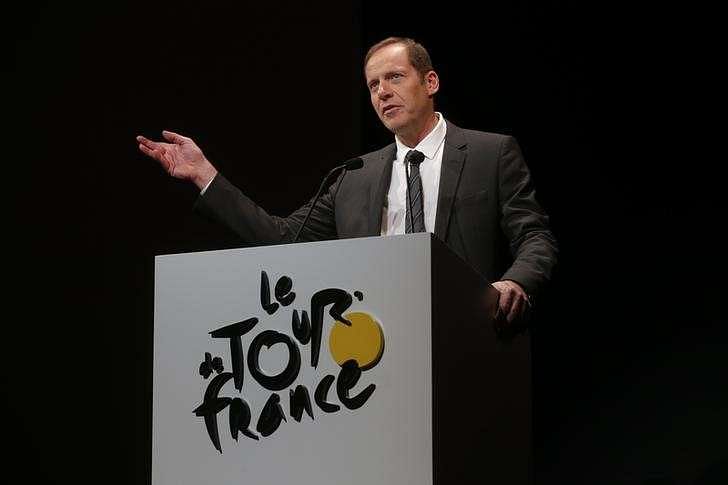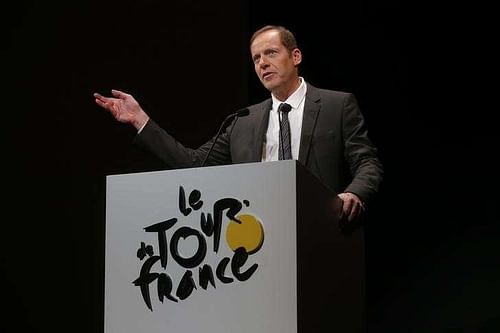
Interview: Cycling no longer the black sheep, says Tour de France director

By Julien Pretot
PARIS (Reuters) - With scandal after scandal rocking the world of sport, cycling is shedding its image as the black sheep because of its changing culture, Tour de France director Christian Prudhomme believes.
Long associated with systematic doping, his sport has been spared such close scrutiny during recent affairs that have plagued football, athletics and the International Olympic Committee.
"We knew all the cheats and the liars on this earth did not gather up one day to decide they would be taking up cycling," Prudhomme told Reuters in an interview as he visited some of the stages of the 2017 Tour route, which will be officially unveiled on Oct. 18.
"Cycling has been cleaning up its act. It was not easy but it has been cleaning up its act," he said, adding that sport would never totally rid itself of doping.
"We want sport to be perfect, while society will never be. Society is not full of saints or full of crooks," said Prudhomme, who has been on the Tour job since 2006 -- the year the Operation Puerto blood doping scandal broke.
He also faced huge doping controversies in 2007, 2008, and 2010.
Since then, however, after cycling became the first sport to implement the biological passport -- an electronic record where a rider's doping test results are collated and monitored -- the Tour has been a much calmer affair.
And the Lance Armstrong scandal, in which the US rider's seven Tour victories were erased from records after he admitted doping, has changed the way the issue is dealt with.
"Until recently, cycling was seen as a closed sport. It is not any more. People talk," said Prudhomme.
Triple champion Chris Froome has been heavily scrutinised, and while rumours have been flying around, none has been proven.
Tour organisers have also benefited from government help in tackling the problem of hidden motors in bikes.
In a crackdown, high-powered thermal cameras using atomic research technology were used on this year's Tour with the support of the French secretary of state for sport.
"Eight days before the Tour I was scared that these rumours would mar the race. Then when the secretary of state announced the use of these cameras, I was relieved," said Prudhomme.
Even the debate surrounding the potential abuse of Therapeutic Use Exemption (TUE) by 2012 Tour champion Bradley Wiggins did not faze Prudhomme.
"I'm happy to see that the climate is much less passionate than it used to be," he said, adding that the public perception of cycling had changed.
"You don't see champions who come from nowhere any more. The likes of (twice Tour runner-up) Nairo Quintana, (Vuelta podium finisher) Esteban Chaves have a pedigree, they shone on the Tour de l'Avenir (the most prestigious under-23 stage race). It's reassuring," he explained.
"A few years ago we had the feeling a change was needed. That's not the case any more."
(Reporting by Julien Pretot; Editing by Neville Dalton)